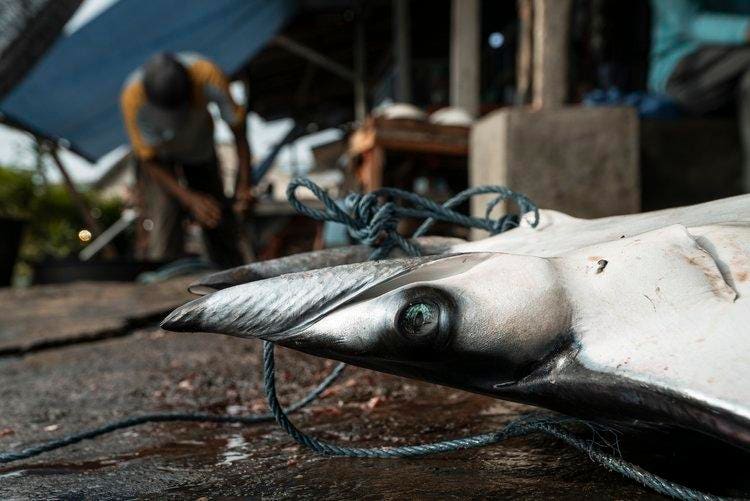Manta and devil rays, magnificent creatures of the ocean, are facing a dire threat despite international protections. A comprehensive new study, spearheaded by The Manta Trust and a global network of experts, paints a stark picture of the widespread exploitation of these vulnerable species. The study, published in the Environmental Biology of Fishes, draws on expert surveys, interviews, and meticulous analysis of trade and fisheries data from 75 countries, revealing a vast and intricate global network driving the unsustainable trade in mobulids. This trade, fueled by demand for their meat and highly valued gill plates, undermines existing conservation efforts and necessitates urgent action to safeguard these iconic animals.
The study’s findings expose the alarming extent of mobulid exploitation, documented in 43 countries. Mobulid meat is consumed in at least 35 nations, while their gill plates, highly prized in traditional Chinese medicine and as a delicacy, are exported from 14. The primary trade routes flow through Asia and Africa, identifying Myanmar, Sri Lanka, Bangladesh, India, and Indonesia as crucial areas requiring immediate conservation intervention. Disturbingly, this exploitation persists despite almost a decade of international protection under CITES Appendix II and national protective measures implemented in over 40 countries. This underscores the inadequacy of current regulations and the urgent need for stronger enforcement and enhanced protection measures.
The trade in mobulid products takes two distinct forms. While mobulid meat consumption is largely localized, with some inter-country trade within South America, Africa, and Asia, the trade in gill plates is predominantly international. Export hubs located in Africa and Asia feed markets in mainland China and Hong Kong, where gill plates can command exorbitant prices, reaching up to USD $1,260 per kilogram. This lucrative market drives the complex trade network, connecting coastal landing sites to global markets via intricate routes spanning land, sea, and air. Processing also varies widely, ranging from informal operations on beaches to sophisticated industrial facilities in countries like Peru and India. This intricate network highlights the challenges in monitoring and controlling the illegal trade.
Myanmar emerges as a critical area of concern within this complex web. The country plays a multifaceted role, serving as a consumer and exporter of mobulid products and acting as a transit hub for gill plates imported from neighboring countries. This central position in the trade network necessitates focused conservation efforts in Myanmar to effectively disrupt the flow of mobulid products. The study emphasizes the urgent need for targeted interventions in high-priority countries like Myanmar to address both local consumption and the international trade that fuels the exploitation of these vulnerable species.
The researchers offer a suite of recommendations to combat this unsustainable trade. These include stricter enforcement of existing international, regional, and national regulations, including those under CITES, the Convention on the Conservation of Migratory Species of Wild Animals (CMS), and Regional Fisheries Management Organizations (RFMOs). Crucially, they advocate for the uplisting of mobulid rays to CITES Appendix I, affording them the highest level of international protection. Effective fisheries management is also essential, aiming to drastically reduce both targeted fishing of mobulids and their accidental capture as bycatch. Improved monitoring of mobulid catches and trade routes is also vital.
Furthermore, the study underscores the necessity of enhanced surveillance measures. Reinforced customs enforcement at airports and land crossings is crucial to intercept illegal shipments. Given the increasing shift towards online marketplaces, particularly in China and Hong Kong, the study emphasizes the importance of monitoring digital sales platforms to curb the burgeoning online trade. This evolving trade landscape necessitates collaborative international efforts to effectively monitor and enforce regulations in the digital sphere. The researchers stress that enacting conservation laws is only the first step; effective implementation is paramount. The current framework is failing to protect mobulids, and urgent, concerted action is needed to prevent the irreversible decline of these remarkable creatures.



